It's dress rehearsal for the inaugural graduation ceremony at the School of St Jude in Arusha, Tanzania, and the formidable Gemma Sisia is trying to convince me she has pulled back from supervising every detail at the school she founded 13 years ago. But with five days to go before the big event, it doesn't look that way. "I don't want to see any wiggly lines like snakes," she instructs the 61 students who are making an untidy approach to the stage and singing too softly for Sisia's liking. "Do you not know the Tanzania national anthem? Prove it to me!" They crank up the volume. "Beautiful. Excellent. Perfect!"
Every one of the 61 students graduating is expected to go on to university and every one of their sponsors – 70 of whom are also here from Australia – have vowed to continue their financial support. One of them is Sharon Smith, 60, a Brisbane businesswoman now on her second visit. After watching the program and hearing Sisia speak at a fundraiser in Brisbane, she offered to sponsor ten St Jude students. "I owned a childcare centre. I was making good money, I could afford it," she says. "I get great satisfaction out of it."
The children start here at the age of seven and graduate, if all goes well, at 20. "It makes me happy to think that these children over here are getting a similar education to my granddaughter in Australia and can do just as well as anyone in the world now," says Smith. However, there are still some funding issues at the school.
Around 150 of the students currently do not have a sponsor, and 165 are only half-sponsored. growing up on a fine-wool merino farm outside Guyra, near Armidale in northern NSW, Gemma Rice was a self-described "challenge junkie". As the only girl in a family of eight children, she quickly learnt to compete with her brothers when it came to mustering sheep and riding horses. According to her mother, Sue Rice, she became fearless and fiercely determined. "She was always very definite in her views, even as a little girl," says Rice. "I don't think you could ever talk Gemma into or out of anything."
To say that Sue and her husband, Basil, who died in 2004, were a deeply religious Catholic family would be an understatement. They converted their dining room into a prayer room, complete with crucifix, candles and statues of Jesus. Out in the paddocks, among the sheep, motorbikes and cattle dogs, they constructed their own Stations of the Cross, depicting scenes from the crucifixion of Christ. It was instilled in the children that there was more to life than just having fun.
"My parents put a huge emphasis on our education and I subconsciously absorbed that," says Sisia. "In doing so, I felt that children from poor families should also have access to a good education." From an early age, it was always in the back of her mind that she'd like to become a nun. "I was quite prepared to live in poverty and chastity," Sisia told me in an interview at the property back in 2005. She discussed the idea with her school principal, who thought she was perhaps "too headstrong" to be a nun, and advised her to get a university qualification instead.
After gaining a degree in biochemistry and genetics at Melbourne University – and, for good measure, a diploma in education – Sisia, at 22 and on the advice of a friend, set off for Uganda to work in a convent school. But the idea of becoming a nun or missionary went astray just a few months after her arrival when she took a safari on the Serengeti Plains in Tanzania. Her driver was one Richard Sisia. "There's nothing like falling in love in the Serengeti," she says now. "It's very romantic, with all the animals and lions around."
In the quiet, 27-year-old Tanzanian, she saw kindness, calmness, strength and a sense of adventure. The attraction was mutual. "We loved each other immediately," says Richard. "But I was scared to tell her anything because I was employed by her, and my job was to show [her] animals, not talk about love."
Back at the convent in Uganda, Gemma tried to forget about the holiday romance. She'd given Richard a deliberately vague address when she left him but, three months later, he embarked on an 1100-kilometre quest to find her, travelling for two days and two nights on a bus to reach the central Ugandan town of Masaka.
After three days spent asking around for the mzungu (white) woman, he found her at the convent school. "I was like, 'Thank god I found her,' " he says. "We had big hugs and talked. I spent three more days with her and we talked about being together for life," he says. Gemma's notion of becoming a nun dissolved.
Explaining to her family that she was going to marry a Tanzanian and live her life in Africa wasn't so easy. They pictured her carrying water on her head and living in a mud hut. Also, for Sue Rice, the idea of her being with a local man was confronting. "That was definitely a hard thing for mum to deal with," Sisia's brother Patrick told Australian Story. "Another country, another culture and, I suppose, the colour."
"We were all worried about her but we prayed about it," Rice told me. "And when she really did say she was going to marry him, it was a shock because as a mother, you worry about your daughter's safety." She maintains that Richard's skin colour never worried her; it was Africa that disturbed her.
Sisia had already started collecting $5 a month from friends and family members to sponsor two girls at the convent school in Uganda. On visits home to Australia, she spoke at Rotary clubs and churches about her experiences, with the result that more and more people joined the sponsorship scheme. She began sending money to other Ugandan schools, but was frustrated to learn that some of it was going missing. An idea started to take shape in her head: why not start her own school and so be sure the money was going where it was needed?
The problem was solved when Richard's father, Daniel – a senior Masai man who'd been educated by missionaries and become a vet – offered to donate a small block of land. Though Westernised and middle class, he worked with the Masai people in Tanzania's Ngorongoro Conservation Area. "He said, 'Gemma, why are you helping all these Ugandan kids when we've got much poorer children in Tanzania?'‰Û " she recalls. " 'If I give you a piece of land, would you build a school for the poor?' "
In 2000, Armidale Central Rotary Club sent over 13 volunteers to construct the first block of classrooms. Richard and Gemma were married in a Masai-Catholic ceremony at the school in 2001 and the School of St Jude opened its doors in January, 2002. It was with a wry sense of humour that Gemma chose the name St Jude: "St Jude is the patron saint of hopeless causes. A girl from Guyra trying to build a school in Africa? That's a serious hopeless case!" The motto "Fight poverty through education" was suggested by her mother.
Initially, the school was staffed by an unlikely trio of volunteers: Sisia, who'd never run a school; Angela Bailey, who at 19 had only just completed an early childhood diploma in Sydney; and Kim Saville, 48, who'd previously worked as a Sydney casting agent. "We got away with a lot in the early days because of our naivety," says Saville.
The school grew rapidly. Within three years it had 500 students and was ranked third out of 204 schools in the district. It employed 100 local staff, half of them teachers, and a team of builders who were constantly adding extra classrooms. A $15 million stroke of luck arrived in 2005 when American philanthropists Gordon and Helen Smith visited Tanzania for a safari and decided to give their support to a local school.
When they got to St Jude, they knew they'd found the one they were looking for. "Gemma wasn't here when we arrived, she was in Australia, but we were impressed that the school was operating fine without her," says their daughter, Cindy Skarbek. The Smiths offered to build a second St Jude campus in Arusha, doubling the school's size.
Every Saturday from August to December, hundreds of children line up at the school gates to compete for one of the 150 places on offer each year at various levels. To gain admission, there are just two criteria: the children must be bright and they must be poor. A "poverty check" involves several unscheduled visits to the child's house to check on their living conditions. And while it is a Christian-based school, 20 per cent of the students are Muslim and numerous tribes are represented. "Students are accepted based on brains and poverty, not sex, tribe or religion," says Sisia.
Today, every member of the teaching staff is Tanzanian. Students sit exams five times a year and those who do not achieve grades of at least 70 per cent are unable to stay at St Jude. It's a harsh policy, but one that's enforced not by Sisia but by the parent committee. "That's sustainability for you," she says. "Tanzanians disciplining Tanzanians."
Four years ago, Sisia stepped down as St Jude director to spend more time with her family. The Sisias' two oldest children, Nathaniel, 14, and Jacob, 12, go to boarding school in South Africa (they don't qualify for St Jude), leaving Isabella, 7, and Louisa, 3, at home. Gemma has also helped Richard relaunch his business, which offers 4WD trips through Tanzania, Rwanda and Kenya.
The school's parent board asked her to come back because families were worried that without her the school could collapse. Standards were slipping, according to Fausta Alfayo, chairperson of the parent committee. "We want her there to do the push-push-pushing," says Alfayo.
As graduation day gets underway, Sisia takes to the stage. The students excitedly adjust their academic robes and hats, debating in rapid-fire Swahili whether the hats' tassel should hang to the left or right. Her voice cracking with emotion, Sisia welcomes Tanzania's deputy minister of education, parents, visitors – including her mother – and the students. "It seems like yesterday that you enrolled," she tells them.
"From today, I am a leader," affirms student representative Cecilia Collumbus. "We are all leaders. To everyone here today, we promise that we are going to leave a remarkable footprint on the future."
For each alumnus, that future begins with a year of community service, including three months of military service, followed by a "giving back" period of teaching in a Tanzanian government school, before going on to university. Judica Amon, 20, wants to study business. In offering her this education, Sisia has, she believes, saved her and other girls from early marriages and mundane lives: "We call this heaven and it is truly heaven compared to the government schools. It has changed our lives and opened up an opportunity for a great future."
In Tanzania, where a cornfield once lay, there now stands a school. Where kids formerly had no better prospects than minding cows, children are receiving a life-changing education. Sue Rice has no more doubts about her daughter's unexpected path in life, even as she recognises that Gemma is unlikely ever to return to Australia to live. "I am more than proud of what she has achieved," she tells me. "I am in awe of it."

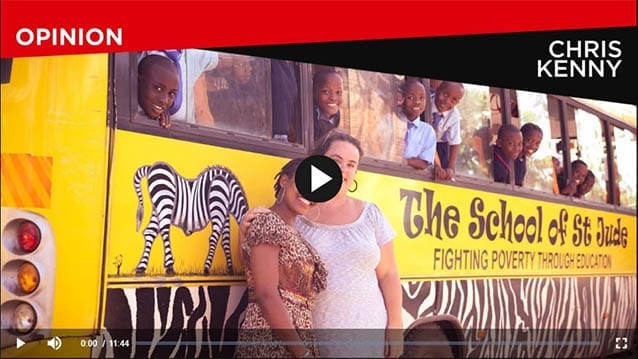
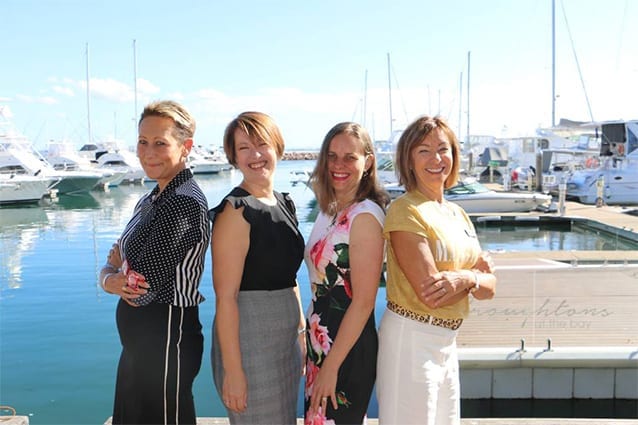
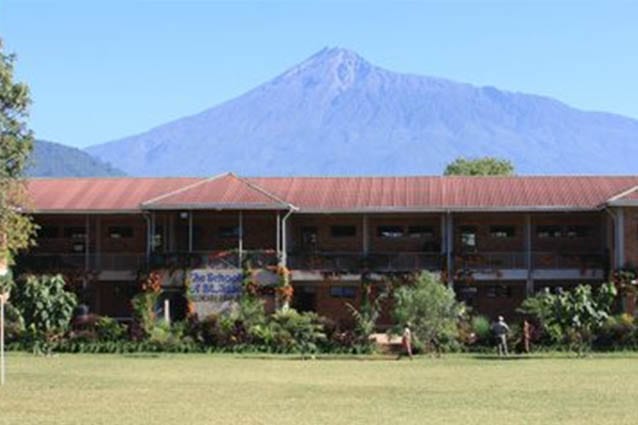
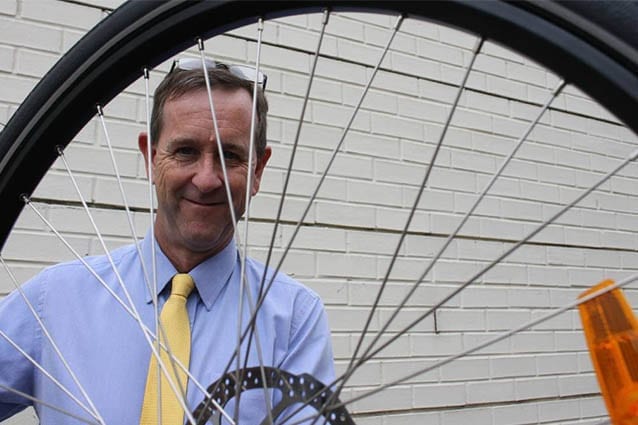
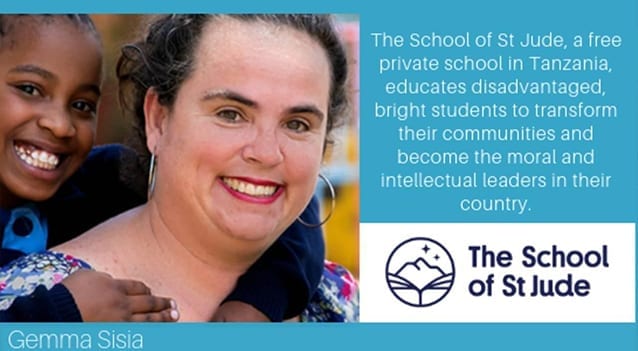
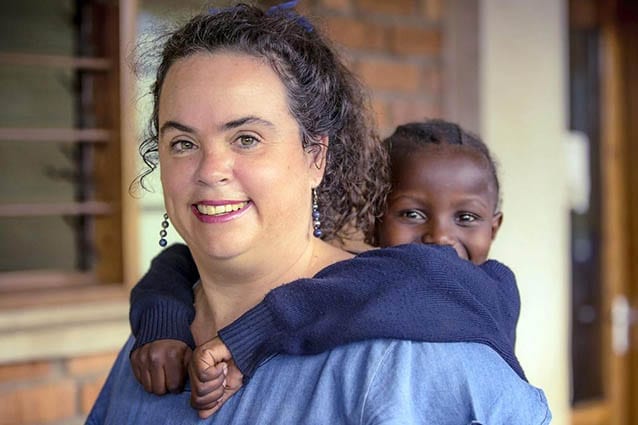
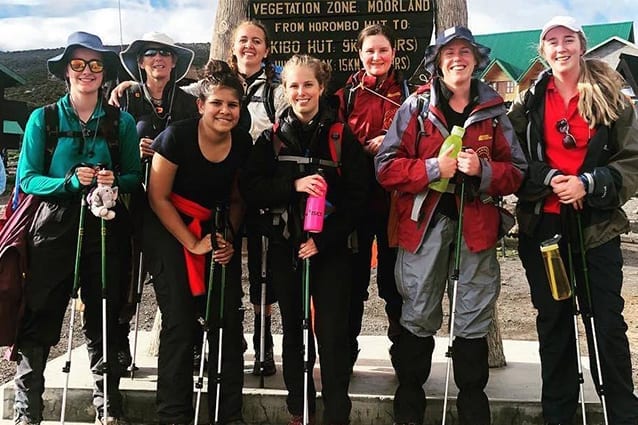
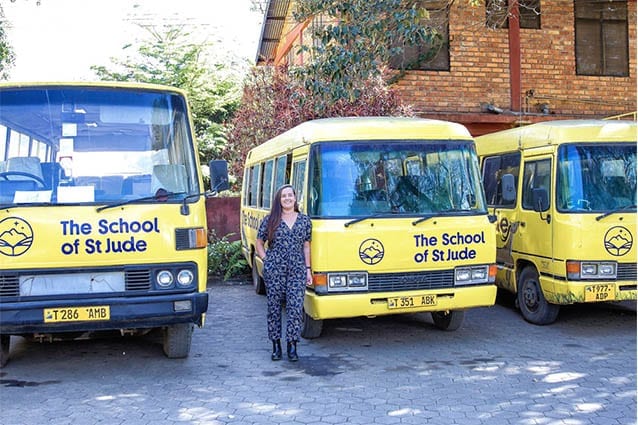
Replies